-
EXECUTIVE SUMMARY
-
Market Overview
-
Key Findings
-
Market Segmentation
-
Competitive Landscape
-
Challenges and Opportunities
-
Future Outlook
-
MARKET INTRODUCTION
-
Definition
-
Scope of the study
-
Research Objective
-
Assumption
-
Limitations
-
RESEARCH METHODOLOGY
-
Overview
-
Data Mining
-
Secondary Research
-
Primary Research
-
Primary Interviews and Information Gathering Process
-
Breakdown of Primary Respondents
-
Forecasting Model
-
Market Size Estimation
-
Bottom-Up Approach
-
Top-Down Approach
-
Data Triangulation
-
Validation
-
MARKET DYNAMICS
-
Overview
-
Drivers
-
Restraints
-
Opportunities
-
MARKET FACTOR ANALYSIS
-
Value chain Analysis
-
Porter's Five Forces Analysis
-
Bargaining Power of Suppliers
-
Bargaining Power of Buyers
-
Threat of New Entrants
-
Threat of Substitutes
-
Intensity of Rivalry
-
COVID-19 Impact Analysis
-
Market Impact Analysis
-
Regional Impact
-
Opportunity and Threat Analysis
-
Child Care Market, BY Service Type (USD Billion)
-
Child Care Centers
-
Home-Based Care
-
Nanny Services
-
Preschool Education
-
After School Programs
-
Child Care Market, BY Age Group (USD Billion)
-
Infants
-
Toddlers
-
Preschoolers
-
School Age Children
-
Child Care Market, BY Payment Model (USD Billion)
-
Government Funded
-
Private Pay
-
Employer Sponsored
-
Non-Profit Assistance
-
Child Care Market, BY Parenting Style (USD Billion)
-
Working Parents
-
Stay-at-Home Parents
-
Single Parents
-
Shared Parenting
-
Child Care Market, BY Regional (USD Billion)
-
North America
-
US
-
Canada
-
Europe
-
Germany
-
UK
-
France
-
Russia
-
Italy
-
Spain
-
Rest of Europe
-
APAC
-
China
-
India
-
Japan
-
South Korea
-
Malaysia
-
Thailand
-
Indonesia
-
Rest of APAC
-
South America
-
Brazil
-
Mexico
-
Argentina
-
Rest of South America
-
MEA
-
GCC Countries
-
South Africa
-
Rest of MEA
-
Competitive Landscape
-
Overview
-
Competitive Analysis
-
Market share Analysis
-
Major Growth Strategy in the Child Care Market
-
Competitive Benchmarking
-
Leading Players in Terms of Number of Developments in the Child Care Market
-
Key developments and growth strategies
-
New Product Launch/Service Deployment
-
Merger & Acquisitions
-
Joint Ventures
-
Major Players Financial Matrix
-
Sales and Operating Income
-
Major Players R&D Expenditure. 2023
-
Company Profiles
-
Kindercare Education
-
Financial Overview
-
Products Offered
-
Key Developments
-
SWOT Analysis
-
Key Strategies
-
Learning Care Group
-
Financial Overview
-
Products Offered
-
Key Developments
-
SWOT Analysis
-
Key Strategies
-
Children's Learning Adventure
-
Financial Overview
-
Products Offered
-
Key Developments
-
SWOT Analysis
-
Key Strategies
-
The Learning Experience
-
Financial Overview
-
Products Offered
-
Key Developments
-
SWOT Analysis
-
Key Strategies
-
The Goddard School
-
Financial Overview
-
Products Offered
-
Key Developments
-
SWOT Analysis
-
Key Strategies
-
Spring Education Group
-
Financial Overview
-
Products Offered
-
Key Developments
-
SWOT Analysis
-
Key Strategies
-
Primrose Schools
-
Financial Overview
-
Products Offered
-
Key Developments
-
SWOT Analysis
-
Key Strategies
-
Goddard Systems Inc
-
Financial Overview
-
Products Offered
-
Key Developments
-
SWOT Analysis
-
Key Strategies
-
Kids 'R' Kids
-
Financial Overview
-
Products Offered
-
Key Developments
-
SWOT Analysis
-
Key Strategies
-
Montessori Schools
-
Financial Overview
-
Products Offered
-
Key Developments
-
SWOT Analysis
-
Key Strategies
-
Bright Horizons Family Solutions
-
Financial Overview
-
Products Offered
-
Key Developments
-
SWOT Analysis
-
Key Strategies
-
Childcare Network
-
Financial Overview
-
Products Offered
-
Key Developments
-
SWOT Analysis
-
Key Strategies
-
Childtime Learning Centers
-
Financial Overview
-
Products Offered
-
Key Developments
-
SWOT Analysis
-
Key Strategies
-
Tutor Time Child Care
-
Financial Overview
-
Products Offered
-
Key Developments
-
SWOT Analysis
-
Key Strategies
-
Appendix
-
References
-
Related Reports
-
LIST Of tables
-
LIST OF ASSUMPTIONS
-
North America Child Care Market SIZE ESTIMATES & FORECAST, BY SERVICE TYPE, 2019-2035 (USD Billions)
-
North America Child Care Market SIZE ESTIMATES & FORECAST, BY AGE GROUP, 2019-2035 (USD Billions)
-
North America Child Care Market SIZE ESTIMATES & FORECAST, BY PAYMENT MODEL, 2019-2035 (USD Billions)
-
North America Child Care Market SIZE ESTIMATES & FORECAST, BY PARENTING STYLE, 2019-2035 (USD Billions)
-
North America Child Care Market SIZE ESTIMATES & FORECAST, BY REGIONAL, 2019-2035 (USD Billions)
-
US Child Care Market SIZE ESTIMATES & FORECAST, BY SERVICE TYPE, 2019-2035 (USD Billions)
-
US Child Care Market SIZE ESTIMATES & FORECAST, BY AGE GROUP, 2019-2035 (USD Billions)
-
US Child Care Market SIZE ESTIMATES & FORECAST, BY PAYMENT MODEL, 2019-2035 (USD Billions)
-
US Child Care Market SIZE ESTIMATES & FORECAST, BY PARENTING STYLE, 2019-2035 (USD Billions)
-
US Child Care Market SIZE ESTIMATES & FORECAST, BY REGIONAL, 2019-2035 (USD Billions)
-
Canada Child Care Market SIZE ESTIMATES & FORECAST, BY SERVICE TYPE, 2019-2035 (USD Billions)
-
Canada Child Care Market SIZE ESTIMATES & FORECAST, BY AGE GROUP, 2019-2035 (USD Billions)
-
Canada Child Care Market SIZE ESTIMATES & FORECAST, BY PAYMENT MODEL, 2019-2035 (USD Billions)
-
Canada Child Care Market SIZE ESTIMATES & FORECAST, BY PARENTING STYLE, 2019-2035 (USD Billions)
-
Canada Child Care Market SIZE ESTIMATES & FORECAST, BY REGIONAL, 2019-2035 (USD Billions)
-
Europe Child Care Market SIZE ESTIMATES & FORECAST, BY SERVICE TYPE, 2019-2035 (USD Billions)
-
Europe Child Care Market SIZE ESTIMATES & FORECAST, BY AGE GROUP, 2019-2035 (USD Billions)
-
Europe Child Care Market SIZE ESTIMATES & FORECAST, BY PAYMENT MODEL, 2019-2035 (USD Billions)
-
Europe Child Care Market SIZE ESTIMATES & FORECAST, BY PARENTING STYLE, 2019-2035 (USD Billions)
-
Europe Child Care Market SIZE ESTIMATES & FORECAST, BY REGIONAL, 2019-2035 (USD Billions)
-
Germany Child Care Market SIZE ESTIMATES & FORECAST, BY SERVICE TYPE, 2019-2035 (USD Billions)
-
Germany Child Care Market SIZE ESTIMATES & FORECAST, BY AGE GROUP, 2019-2035 (USD Billions)
-
Germany Child Care Market SIZE ESTIMATES & FORECAST, BY PAYMENT MODEL, 2019-2035 (USD Billions)
-
Germany Child Care Market SIZE ESTIMATES & FORECAST, BY PARENTING STYLE, 2019-2035 (USD Billions)
-
Germany Child Care Market SIZE ESTIMATES & FORECAST, BY REGIONAL, 2019-2035 (USD Billions)
-
UK Child Care Market SIZE ESTIMATES & FORECAST, BY SERVICE TYPE, 2019-2035 (USD Billions)
-
UK Child Care Market SIZE ESTIMATES & FORECAST, BY AGE GROUP, 2019-2035 (USD Billions)
-
UK Child Care Market SIZE ESTIMATES & FORECAST, BY PAYMENT MODEL, 2019-2035 (USD Billions)
-
UK Child Care Market SIZE ESTIMATES & FORECAST, BY PARENTING STYLE, 2019-2035 (USD Billions)
-
UK Child Care Market SIZE ESTIMATES & FORECAST, BY REGIONAL, 2019-2035 (USD Billions)
-
France Child Care Market SIZE ESTIMATES & FORECAST, BY SERVICE TYPE, 2019-2035 (USD Billions)
-
France Child Care Market SIZE ESTIMATES & FORECAST, BY AGE GROUP, 2019-2035 (USD Billions)
-
France Child Care Market SIZE ESTIMATES & FORECAST, BY PAYMENT MODEL, 2019-2035 (USD Billions)
-
France Child Care Market SIZE ESTIMATES & FORECAST, BY PARENTING STYLE, 2019-2035 (USD Billions)
-
France Child Care Market SIZE ESTIMATES & FORECAST, BY REGIONAL, 2019-2035 (USD Billions)
-
Russia Child Care Market SIZE ESTIMATES & FORECAST, BY SERVICE TYPE, 2019-2035 (USD Billions)
-
Russia Child Care Market SIZE ESTIMATES & FORECAST, BY AGE GROUP, 2019-2035 (USD Billions)
-
Russia Child Care Market SIZE ESTIMATES & FORECAST, BY PAYMENT MODEL, 2019-2035 (USD Billions)
-
Russia Child Care Market SIZE ESTIMATES & FORECAST, BY PARENTING STYLE, 2019-2035 (USD Billions)
-
Russia Child Care Market SIZE ESTIMATES & FORECAST, BY REGIONAL, 2019-2035 (USD Billions)
-
Italy Child Care Market SIZE ESTIMATES & FORECAST, BY SERVICE TYPE, 2019-2035 (USD Billions)
-
Italy Child Care Market SIZE ESTIMATES & FORECAST, BY AGE GROUP, 2019-2035 (USD Billions)
-
Italy Child Care Market SIZE ESTIMATES & FORECAST, BY PAYMENT MODEL, 2019-2035 (USD Billions)
-
Italy Child Care Market SIZE ESTIMATES & FORECAST, BY PARENTING STYLE, 2019-2035 (USD Billions)
-
Italy Child Care Market SIZE ESTIMATES & FORECAST, BY REGIONAL, 2019-2035 (USD Billions)
-
Spain Child Care Market SIZE ESTIMATES & FORECAST, BY SERVICE TYPE, 2019-2035 (USD Billions)
-
Spain Child Care Market SIZE ESTIMATES & FORECAST, BY AGE GROUP, 2019-2035 (USD Billions)
-
Spain Child Care Market SIZE ESTIMATES & FORECAST, BY PAYMENT MODEL, 2019-2035 (USD Billions)
-
Spain Child Care Market SIZE ESTIMATES & FORECAST, BY PARENTING STYLE, 2019-2035 (USD Billions)
-
Spain Child Care Market SIZE ESTIMATES & FORECAST, BY REGIONAL, 2019-2035 (USD Billions)
-
Rest of Europe Child Care Market SIZE ESTIMATES & FORECAST, BY SERVICE TYPE, 2019-2035 (USD Billions)
-
Rest of Europe Child Care Market SIZE ESTIMATES & FORECAST, BY AGE GROUP, 2019-2035 (USD Billions)
-
Rest of Europe Child Care Market SIZE ESTIMATES & FORECAST, BY PAYMENT MODEL, 2019-2035 (USD Billions)
-
Rest of Europe Child Care Market SIZE ESTIMATES & FORECAST, BY PARENTING STYLE, 2019-2035 (USD Billions)
-
Rest of Europe Child Care Market SIZE ESTIMATES & FORECAST, BY REGIONAL, 2019-2035 (USD Billions)
-
APAC Child Care Market SIZE ESTIMATES & FORECAST, BY SERVICE TYPE, 2019-2035 (USD Billions)
-
APAC Child Care Market SIZE ESTIMATES & FORECAST, BY AGE GROUP, 2019-2035 (USD Billions)
-
APAC Child Care Market SIZE ESTIMATES & FORECAST, BY PAYMENT MODEL, 2019-2035 (USD Billions)
-
APAC Child Care Market SIZE ESTIMATES & FORECAST, BY PARENTING STYLE, 2019-2035 (USD Billions)
-
APAC Child Care Market SIZE ESTIMATES & FORECAST, BY REGIONAL, 2019-2035 (USD Billions)
-
China Child Care Market SIZE ESTIMATES & FORECAST, BY SERVICE TYPE, 2019-2035 (USD Billions)
-
China Child Care Market SIZE ESTIMATES & FORECAST, BY AGE GROUP, 2019-2035 (USD Billions)
-
China Child Care Market SIZE ESTIMATES & FORECAST, BY PAYMENT MODEL, 2019-2035 (USD Billions)
-
China Child Care Market SIZE ESTIMATES & FORECAST, BY PARENTING STYLE, 2019-2035 (USD Billions)
-
China Child Care Market SIZE ESTIMATES & FORECAST, BY REGIONAL, 2019-2035 (USD Billions)
-
India Child Care Market SIZE ESTIMATES & FORECAST, BY SERVICE TYPE, 2019-2035 (USD Billions)
-
India Child Care Market SIZE ESTIMATES & FORECAST, BY AGE GROUP, 2019-2035 (USD Billions)
-
India Child Care Market SIZE ESTIMATES & FORECAST, BY PAYMENT MODEL, 2019-2035 (USD Billions)
-
India Child Care Market SIZE ESTIMATES & FORECAST, BY PARENTING STYLE, 2019-2035 (USD Billions)
-
India Child Care Market SIZE ESTIMATES & FORECAST, BY REGIONAL, 2019-2035 (USD Billions)
-
Japan Child Care Market SIZE ESTIMATES & FORECAST, BY SERVICE TYPE, 2019-2035 (USD Billions)
-
Japan Child Care Market SIZE ESTIMATES & FORECAST, BY AGE GROUP, 2019-2035 (USD Billions)
-
Japan Child Care Market SIZE ESTIMATES & FORECAST, BY PAYMENT MODEL, 2019-2035 (USD Billions)
-
Japan Child Care Market SIZE ESTIMATES & FORECAST, BY PARENTING STYLE, 2019-2035 (USD Billions)
-
Japan Child Care Market SIZE ESTIMATES & FORECAST, BY REGIONAL, 2019-2035 (USD Billions)
-
South Korea Child Care Market SIZE ESTIMATES & FORECAST, BY SERVICE TYPE, 2019-2035 (USD Billions)
-
South Korea Child Care Market SIZE ESTIMATES & FORECAST, BY AGE GROUP, 2019-2035 (USD Billions)
-
South Korea Child Care Market SIZE ESTIMATES & FORECAST, BY PAYMENT MODEL, 2019-2035 (USD Billions)
-
South Korea Child Care Market SIZE ESTIMATES & FORECAST, BY PARENTING STYLE, 2019-2035 (USD Billions)
-
South Korea Child Care Market SIZE ESTIMATES & FORECAST, BY REGIONAL, 2019-2035 (USD Billions)
-
Malaysia Child Care Market SIZE ESTIMATES & FORECAST, BY SERVICE TYPE, 2019-2035 (USD Billions)
-
Malaysia Child Care Market SIZE ESTIMATES & FORECAST, BY AGE GROUP, 2019-2035 (USD Billions)
-
Malaysia Child Care Market SIZE ESTIMATES & FORECAST, BY PAYMENT MODEL, 2019-2035 (USD Billions)
-
Malaysia Child Care Market SIZE ESTIMATES & FORECAST, BY PARENTING STYLE, 2019-2035 (USD Billions)
-
Malaysia Child Care Market SIZE ESTIMATES & FORECAST, BY REGIONAL, 2019-2035 (USD Billions)
-
Thailand Child Care Market SIZE ESTIMATES & FORECAST, BY SERVICE TYPE, 2019-2035 (USD Billions)
-
Thailand Child Care Market SIZE ESTIMATES & FORECAST, BY AGE GROUP, 2019-2035 (USD Billions)
-
Thailand Child Care Market SIZE ESTIMATES & FORECAST, BY PAYMENT MODEL, 2019-2035 (USD Billions)
-
Thailand Child Care Market SIZE ESTIMATES & FORECAST, BY PARENTING STYLE, 2019-2035 (USD Billions)
-
Thailand Child Care Market SIZE ESTIMATES & FORECAST, BY REGIONAL, 2019-2035 (USD Billions)
-
Indonesia Child Care Market SIZE ESTIMATES & FORECAST, BY SERVICE TYPE, 2019-2035 (USD Billions)
-
Indonesia Child Care Market SIZE ESTIMATES & FORECAST, BY AGE GROUP, 2019-2035 (USD Billions)
-
Indonesia Child Care Market SIZE ESTIMATES & FORECAST, BY PAYMENT MODEL, 2019-2035 (USD Billions)
-
Indonesia Child Care Market SIZE ESTIMATES & FORECAST, BY PARENTING STYLE, 2019-2035 (USD Billions)
-
Indonesia Child Care Market SIZE ESTIMATES & FORECAST, BY REGIONAL, 2019-2035 (USD Billions)
-
Rest of APAC Child Care Market SIZE ESTIMATES & FORECAST, BY SERVICE TYPE, 2019-2035 (USD Billions)
-
Rest of APAC Child Care Market SIZE ESTIMATES & FORECAST, BY AGE GROUP, 2019-2035 (USD Billions)
-
Rest of APAC Child Care Market SIZE ESTIMATES & FORECAST, BY PAYMENT MODEL, 2019-2035 (USD Billions)
-
Rest of APAC Child Care Market SIZE ESTIMATES & FORECAST, BY PARENTING STYLE, 2019-2035 (USD Billions)
-
Rest of APAC Child Care Market SIZE ESTIMATES & FORECAST, BY REGIONAL, 2019-2035 (USD Billions)
-
South America Child Care Market SIZE ESTIMATES & FORECAST, BY SERVICE TYPE, 2019-2035 (USD Billions)
-
South America Child Care Market SIZE ESTIMATES & FORECAST, BY AGE GROUP, 2019-2035 (USD Billions)
-
South America Child Care Market SIZE ESTIMATES & FORECAST, BY PAYMENT MODEL, 2019-2035 (USD Billions)
-
South America Child Care Market SIZE ESTIMATES & FORECAST, BY PARENTING STYLE, 2019-2035 (USD Billions)
-
South America Child Care Market SIZE ESTIMATES & FORECAST, BY REGIONAL, 2019-2035 (USD Billions)
-
Brazil Child Care Market SIZE ESTIMATES & FORECAST, BY SERVICE TYPE, 2019-2035 (USD Billions)
-
Brazil Child Care Market SIZE ESTIMATES & FORECAST, BY AGE GROUP, 2019-2035 (USD Billions)
-
Brazil Child Care Market SIZE ESTIMATES & FORECAST, BY PAYMENT MODEL, 2019-2035 (USD Billions)
-
Brazil Child Care Market SIZE ESTIMATES & FORECAST, BY PARENTING STYLE, 2019-2035 (USD Billions)
-
Brazil Child Care Market SIZE ESTIMATES & FORECAST, BY REGIONAL, 2019-2035 (USD Billions)
-
Mexico Child Care Market SIZE ESTIMATES & FORECAST, BY SERVICE TYPE, 2019-2035 (USD Billions)
-
Mexico Child Care Market SIZE ESTIMATES & FORECAST, BY AGE GROUP, 2019-2035 (USD Billions)
-
Mexico Child Care Market SIZE ESTIMATES & FORECAST, BY PAYMENT MODEL, 2019-2035 (USD Billions)
-
Mexico Child Care Market SIZE ESTIMATES & FORECAST, BY PARENTING STYLE, 2019-2035 (USD Billions)
-
Mexico Child Care Market SIZE ESTIMATES & FORECAST, BY REGIONAL, 2019-2035 (USD Billions)
-
Argentina Child Care Market SIZE ESTIMATES & FORECAST, BY SERVICE TYPE, 2019-2035 (USD Billions)
-
Argentina Child Care Market SIZE ESTIMATES & FORECAST, BY AGE GROUP, 2019-2035 (USD Billions)
-
Argentina Child Care Market SIZE ESTIMATES & FORECAST, BY PAYMENT MODEL, 2019-2035 (USD Billions)
-
Argentina Child Care Market SIZE ESTIMATES & FORECAST, BY PARENTING STYLE, 2019-2035 (USD Billions)
-
Argentina Child Care Market SIZE ESTIMATES & FORECAST, BY REGIONAL, 2019-2035 (USD Billions)
-
Rest of South America Child Care Market SIZE ESTIMATES & FORECAST, BY SERVICE TYPE, 2019-2035 (USD Billions)
-
Rest of South America Child Care Market SIZE ESTIMATES & FORECAST, BY AGE GROUP, 2019-2035 (USD Billions)
-
Rest of South America Child Care Market SIZE ESTIMATES & FORECAST, BY PAYMENT MODEL, 2019-2035 (USD Billions)
-
Rest of South America Child Care Market SIZE ESTIMATES & FORECAST, BY PARENTING STYLE, 2019-2035 (USD Billions)
-
Rest of South America Child Care Market SIZE ESTIMATES & FORECAST, BY REGIONAL, 2019-2035 (USD Billions)
-
MEA Child Care Market SIZE ESTIMATES & FORECAST, BY SERVICE TYPE, 2019-2035 (USD Billions)
-
MEA Child Care Market SIZE ESTIMATES & FORECAST, BY AGE GROUP, 2019-2035 (USD Billions)
-
MEA Child Care Market SIZE ESTIMATES & FORECAST, BY PAYMENT MODEL, 2019-2035 (USD Billions)
-
MEA Child Care Market SIZE ESTIMATES & FORECAST, BY PARENTING STYLE, 2019-2035 (USD Billions)
-
MEA Child Care Market SIZE ESTIMATES & FORECAST, BY REGIONAL, 2019-2035 (USD Billions)
-
GCC Countries Child Care Market SIZE ESTIMATES & FORECAST, BY SERVICE TYPE, 2019-2035 (USD Billions)
-
GCC Countries Child Care Market SIZE ESTIMATES & FORECAST, BY AGE GROUP, 2019-2035 (USD Billions)
-
GCC Countries Child Care Market SIZE ESTIMATES & FORECAST, BY PAYMENT MODEL, 2019-2035 (USD Billions)
-
GCC Countries Child Care Market SIZE ESTIMATES & FORECAST, BY PARENTING STYLE, 2019-2035 (USD Billions)
-
GCC Countries Child Care Market SIZE ESTIMATES & FORECAST, BY REGIONAL, 2019-2035 (USD Billions)
-
South Africa Child Care Market SIZE ESTIMATES & FORECAST, BY SERVICE TYPE, 2019-2035 (USD Billions)
-
South Africa Child Care Market SIZE ESTIMATES & FORECAST, BY AGE GROUP, 2019-2035 (USD Billions)
-
South Africa Child Care Market SIZE ESTIMATES & FORECAST, BY PAYMENT MODEL, 2019-2035 (USD Billions)
-
South Africa Child Care Market SIZE ESTIMATES & FORECAST, BY PARENTING STYLE, 2019-2035 (USD Billions)
-
South Africa Child Care Market SIZE ESTIMATES & FORECAST, BY REGIONAL, 2019-2035 (USD Billions)
-
Rest of MEA Child Care Market SIZE ESTIMATES & FORECAST, BY SERVICE TYPE, 2019-2035 (USD Billions)
-
Rest of MEA Child Care Market SIZE ESTIMATES & FORECAST, BY AGE GROUP, 2019-2035 (USD Billions)
-
Rest of MEA Child Care Market SIZE ESTIMATES & FORECAST, BY PAYMENT MODEL, 2019-2035 (USD Billions)
-
Rest of MEA Child Care Market SIZE ESTIMATES & FORECAST, BY PARENTING STYLE, 2019-2035 (USD Billions)
-
Rest of MEA Child Care Market SIZE ESTIMATES & FORECAST, BY REGIONAL, 2019-2035 (USD Billions)
-
PRODUCT LAUNCH/PRODUCT DEVELOPMENT/APPROVAL
-
ACQUISITION/PARTNERSHIP
-
LIST Of figures
-
MARKET SYNOPSIS
-
NORTH AMERICA CHILD CARE MARKET ANALYSIS
-
US CHILD CARE MARKET ANALYSIS BY SERVICE TYPE
-
US CHILD CARE MARKET ANALYSIS BY AGE GROUP
-
US CHILD CARE MARKET ANALYSIS BY PAYMENT MODEL
-
US CHILD CARE MARKET ANALYSIS BY PARENTING STYLE
-
US CHILD CARE MARKET ANALYSIS BY REGIONAL
-
CANADA CHILD CARE MARKET ANALYSIS BY SERVICE TYPE
-
CANADA CHILD CARE MARKET ANALYSIS BY AGE GROUP
-
CANADA CHILD CARE MARKET ANALYSIS BY PAYMENT MODEL
-
CANADA CHILD CARE MARKET ANALYSIS BY PARENTING STYLE
-
CANADA CHILD CARE MARKET ANALYSIS BY REGIONAL
-
EUROPE CHILD CARE MARKET ANALYSIS
-
GERMANY CHILD CARE MARKET ANALYSIS BY SERVICE TYPE
-
GERMANY CHILD CARE MARKET ANALYSIS BY AGE GROUP
-
GERMANY CHILD CARE MARKET ANALYSIS BY PAYMENT MODEL
-
GERMANY CHILD CARE MARKET ANALYSIS BY PARENTING STYLE
-
GERMANY CHILD CARE MARKET ANALYSIS BY REGIONAL
-
UK CHILD CARE MARKET ANALYSIS BY SERVICE TYPE
-
UK CHILD CARE MARKET ANALYSIS BY AGE GROUP
-
UK CHILD CARE MARKET ANALYSIS BY PAYMENT MODEL
-
UK CHILD CARE MARKET ANALYSIS BY PARENTING STYLE
-
UK CHILD CARE MARKET ANALYSIS BY REGIONAL
-
FRANCE CHILD CARE MARKET ANALYSIS BY SERVICE TYPE
-
FRANCE CHILD CARE MARKET ANALYSIS BY AGE GROUP
-
FRANCE CHILD CARE MARKET ANALYSIS BY PAYMENT MODEL
-
FRANCE CHILD CARE MARKET ANALYSIS BY PARENTING STYLE
-
FRANCE CHILD CARE MARKET ANALYSIS BY REGIONAL
-
RUSSIA CHILD CARE MARKET ANALYSIS BY SERVICE TYPE
-
RUSSIA CHILD CARE MARKET ANALYSIS BY AGE GROUP
-
RUSSIA CHILD CARE MARKET ANALYSIS BY PAYMENT MODEL
-
RUSSIA CHILD CARE MARKET ANALYSIS BY PARENTING STYLE
-
RUSSIA CHILD CARE MARKET ANALYSIS BY REGIONAL
-
ITALY CHILD CARE MARKET ANALYSIS BY SERVICE TYPE
-
ITALY CHILD CARE MARKET ANALYSIS BY AGE GROUP
-
ITALY CHILD CARE MARKET ANALYSIS BY PAYMENT MODEL
-
ITALY CHILD CARE MARKET ANALYSIS BY PARENTING STYLE
-
ITALY CHILD CARE MARKET ANALYSIS BY REGIONAL
-
SPAIN CHILD CARE MARKET ANALYSIS BY SERVICE TYPE
-
SPAIN CHILD CARE MARKET ANALYSIS BY AGE GROUP
-
SPAIN CHILD CARE MARKET ANALYSIS BY PAYMENT MODEL
-
SPAIN CHILD CARE MARKET ANALYSIS BY PARENTING STYLE
-
SPAIN CHILD CARE MARKET ANALYSIS BY REGIONAL
-
REST OF EUROPE CHILD CARE MARKET ANALYSIS BY SERVICE TYPE
-
REST OF EUROPE CHILD CARE MARKET ANALYSIS BY AGE GROUP
-
REST OF EUROPE CHILD CARE MARKET ANALYSIS BY PAYMENT MODEL
-
REST OF EUROPE CHILD CARE MARKET ANALYSIS BY PARENTING STYLE
-
REST OF EUROPE CHILD CARE MARKET ANALYSIS BY REGIONAL
-
APAC CHILD CARE MARKET ANALYSIS
-
CHINA CHILD CARE MARKET ANALYSIS BY SERVICE TYPE
-
CHINA CHILD CARE MARKET ANALYSIS BY AGE GROUP
-
CHINA CHILD CARE MARKET ANALYSIS BY PAYMENT MODEL
-
CHINA CHILD CARE MARKET ANALYSIS BY PARENTING STYLE
-
CHINA CHILD CARE MARKET ANALYSIS BY REGIONAL
-
INDIA CHILD CARE MARKET ANALYSIS BY SERVICE TYPE
-
INDIA CHILD CARE MARKET ANALYSIS BY AGE GROUP
-
INDIA CHILD CARE MARKET ANALYSIS BY PAYMENT MODEL
-
INDIA CHILD CARE MARKET ANALYSIS BY PARENTING STYLE
-
INDIA CHILD CARE MARKET ANALYSIS BY REGIONAL
-
JAPAN CHILD CARE MARKET ANALYSIS BY SERVICE TYPE
-
JAPAN CHILD CARE MARKET ANALYSIS BY AGE GROUP
-
JAPAN CHILD CARE MARKET ANALYSIS BY PAYMENT MODEL
-
JAPAN CHILD CARE MARKET ANALYSIS BY PARENTING STYLE
-
JAPAN CHILD CARE MARKET ANALYSIS BY REGIONAL
-
SOUTH KOREA CHILD CARE MARKET ANALYSIS BY SERVICE TYPE
-
SOUTH KOREA CHILD CARE MARKET ANALYSIS BY AGE GROUP
-
SOUTH KOREA CHILD CARE MARKET ANALYSIS BY PAYMENT MODEL
-
SOUTH KOREA CHILD CARE MARKET ANALYSIS BY PARENTING STYLE
-
SOUTH KOREA CHILD CARE MARKET ANALYSIS BY REGIONAL
-
MALAYSIA CHILD CARE MARKET ANALYSIS BY SERVICE TYPE
-
MALAYSIA CHILD CARE MARKET ANALYSIS BY AGE GROUP
-
MALAYSIA CHILD CARE MARKET ANALYSIS BY PAYMENT MODEL
-
MALAYSIA CHILD CARE MARKET ANALYSIS BY PARENTING STYLE
-
MALAYSIA CHILD CARE MARKET ANALYSIS BY REGIONAL
-
THAILAND CHILD CARE MARKET ANALYSIS BY SERVICE TYPE
-
THAILAND CHILD CARE MARKET ANALYSIS BY AGE GROUP
-
THAILAND CHILD CARE MARKET ANALYSIS BY PAYMENT MODEL
-
THAILAND CHILD CARE MARKET ANALYSIS BY PARENTING STYLE
-
THAILAND CHILD CARE MARKET ANALYSIS BY REGIONAL
-
INDONESIA CHILD CARE MARKET ANALYSIS BY SERVICE TYPE
-
INDONESIA CHILD CARE MARKET ANALYSIS BY AGE GROUP
-
INDONESIA CHILD CARE MARKET ANALYSIS BY PAYMENT MODEL
-
INDONESIA CHILD CARE MARKET ANALYSIS BY PARENTING STYLE
-
INDONESIA CHILD CARE MARKET ANALYSIS BY REGIONAL
-
REST OF APAC CHILD CARE MARKET ANALYSIS BY SERVICE TYPE
-
REST OF APAC CHILD CARE MARKET ANALYSIS BY AGE GROUP
-
REST OF APAC CHILD CARE MARKET ANALYSIS BY PAYMENT MODEL
-
REST OF APAC CHILD CARE MARKET ANALYSIS BY PARENTING STYLE
-
REST OF APAC CHILD CARE MARKET ANALYSIS BY REGIONAL
-
SOUTH AMERICA CHILD CARE MARKET ANALYSIS
-
BRAZIL CHILD CARE MARKET ANALYSIS BY SERVICE TYPE
-
BRAZIL CHILD CARE MARKET ANALYSIS BY AGE GROUP
-
BRAZIL CHILD CARE MARKET ANALYSIS BY PAYMENT MODEL
-
BRAZIL CHILD CARE MARKET ANALYSIS BY PARENTING STYLE
-
BRAZIL CHILD CARE MARKET ANALYSIS BY REGIONAL
-
MEXICO CHILD CARE MARKET ANALYSIS BY SERVICE TYPE
-
MEXICO CHILD CARE MARKET ANALYSIS BY AGE GROUP
-
MEXICO CHILD CARE MARKET ANALYSIS BY PAYMENT MODEL
-
MEXICO CHILD CARE MARKET ANALYSIS BY PARENTING STYLE
-
MEXICO CHILD CARE MARKET ANALYSIS BY REGIONAL
-
ARGENTINA CHILD CARE MARKET ANALYSIS BY SERVICE TYPE
-
ARGENTINA CHILD CARE MARKET ANALYSIS BY AGE GROUP
-
ARGENTINA CHILD CARE MARKET ANALYSIS BY PAYMENT MODEL
-
ARGENTINA CHILD CARE MARKET ANALYSIS BY PARENTING STYLE
-
ARGENTINA CHILD CARE MARKET ANALYSIS BY REGIONAL
-
REST OF SOUTH AMERICA CHILD CARE MARKET ANALYSIS BY SERVICE TYPE
-
REST OF SOUTH AMERICA CHILD CARE MARKET ANALYSIS BY AGE GROUP
-
REST OF SOUTH AMERICA CHILD CARE MARKET ANALYSIS BY PAYMENT MODEL
-
REST OF SOUTH AMERICA CHILD CARE MARKET ANALYSIS BY PARENTING STYLE
-
REST OF SOUTH AMERICA CHILD CARE MARKET ANALYSIS BY REGIONAL
-
MEA CHILD CARE MARKET ANALYSIS
-
GCC COUNTRIES CHILD CARE MARKET ANALYSIS BY SERVICE TYPE
-
GCC COUNTRIES CHILD CARE MARKET ANALYSIS BY AGE GROUP
-
GCC COUNTRIES CHILD CARE MARKET ANALYSIS BY PAYMENT MODEL
-
GCC COUNTRIES CHILD CARE MARKET ANALYSIS BY PARENTING STYLE
-
GCC COUNTRIES CHILD CARE MARKET ANALYSIS BY REGIONAL
-
SOUTH AFRICA CHILD CARE MARKET ANALYSIS BY SERVICE TYPE
-
SOUTH AFRICA CHILD CARE MARKET ANALYSIS BY AGE GROUP
-
SOUTH AFRICA CHILD CARE MARKET ANALYSIS BY PAYMENT MODEL
-
SOUTH AFRICA CHILD CARE MARKET ANALYSIS BY PARENTING STYLE
-
SOUTH AFRICA CHILD CARE MARKET ANALYSIS BY REGIONAL
-
REST OF MEA CHILD CARE MARKET ANALYSIS BY SERVICE TYPE
-
REST OF MEA CHILD CARE MARKET ANALYSIS BY AGE GROUP
-
REST OF MEA CHILD CARE MARKET ANALYSIS BY PAYMENT MODEL
-
REST OF MEA CHILD CARE MARKET ANALYSIS BY PARENTING STYLE
-
REST OF MEA CHILD CARE MARKET ANALYSIS BY REGIONAL
-
KEY BUYING CRITERIA OF CHILD CARE MARKET
-
RESEARCH PROCESS OF MRFR
-
DRO ANALYSIS OF CHILD CARE MARKET
-
DRIVERS IMPACT ANALYSIS: CHILD CARE MARKET
-
RESTRAINTS IMPACT ANALYSIS: CHILD CARE MARKET
-
SUPPLY / VALUE CHAIN: CHILD CARE MARKET
-
CHILD CARE MARKET, BY SERVICE TYPE, 2025 (% SHARE)
-
CHILD CARE MARKET, BY SERVICE TYPE, 2019 TO 2035 (USD Billions)
-
CHILD CARE MARKET, BY AGE GROUP, 2025 (% SHARE)
-
CHILD CARE MARKET, BY AGE GROUP, 2019 TO 2035 (USD Billions)
-
CHILD CARE MARKET, BY PAYMENT MODEL, 2025 (% SHARE)
-
CHILD CARE MARKET, BY PAYMENT MODEL, 2019 TO 2035 (USD Billions)
-
CHILD CARE MARKET, BY PARENTING STYLE, 2025 (% SHARE)
-
CHILD CARE MARKET, BY PARENTING STYLE, 2019 TO 2035 (USD Billions)
-
CHILD CARE MARKET, BY REGIONAL, 2025 (% SHARE)
-
CHILD CARE MARKET, BY REGIONAL, 2019 TO 2035 (USD Billions)
-
BENCHMARKING OF MAJOR COMPETITORS


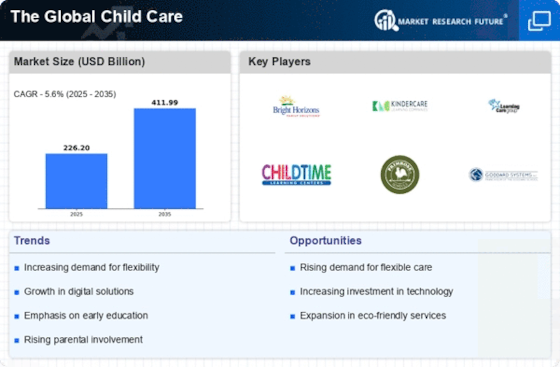
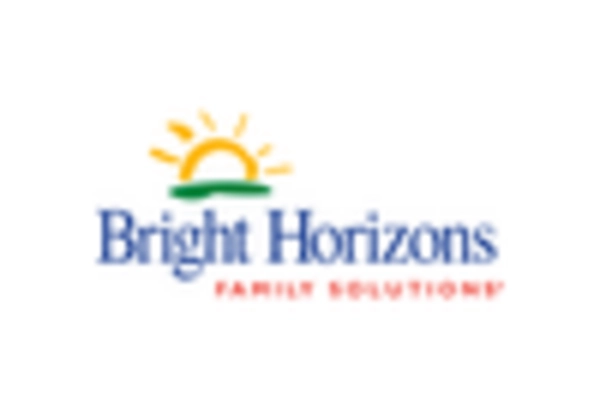
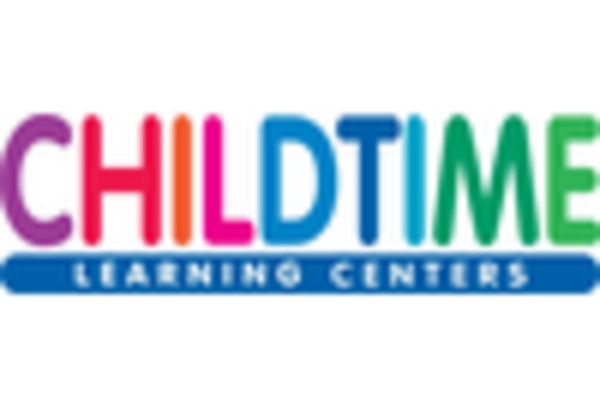
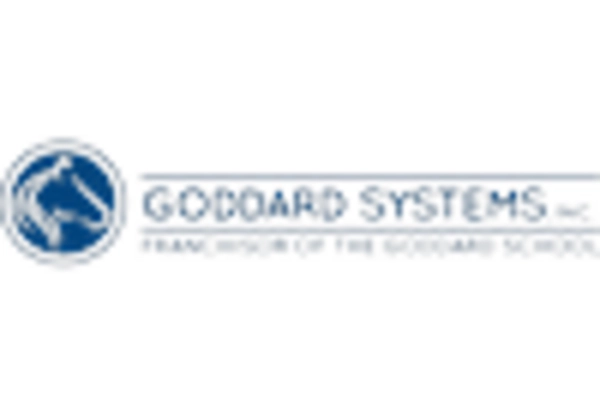
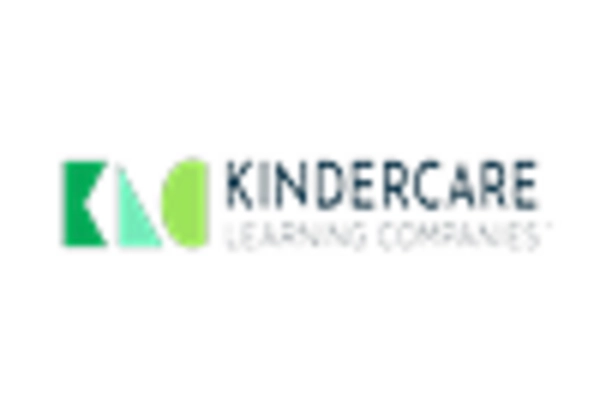
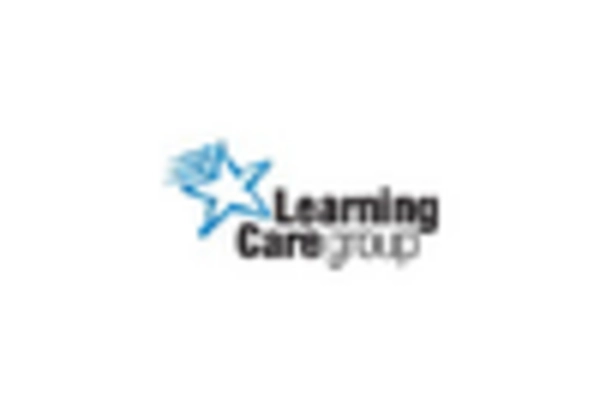
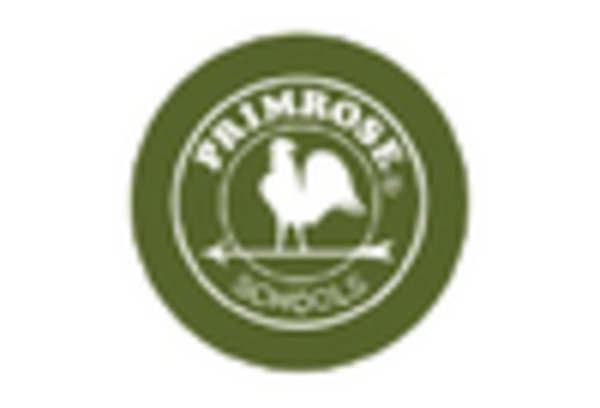









Leave a Comment